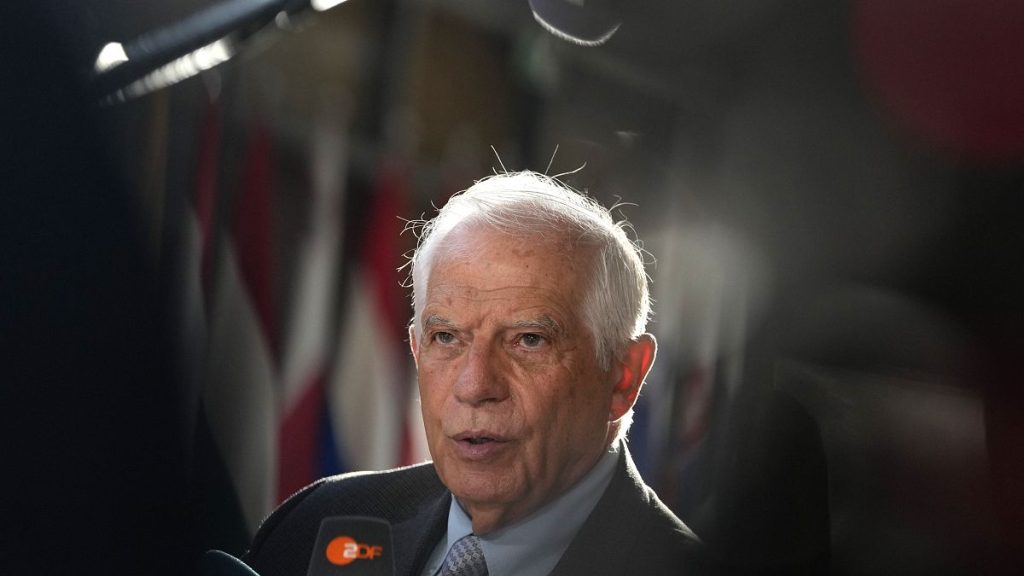The EU’s foreign policy chief, Josep Borrell, has suggested that the bloc consider imposing sanctions on Israeli government ministers over their remarks on the war in Gaza, which he believes go against international law. Borrell stated that the European Union should not have taboos when it comes to enforcing humanitarian law, however, he acknowledged that the final decision rests with the individual member states. Borrell’s proposal has not been met with unanimous support, with Italy’s foreign minister criticizing the idea as “unrealistic” and calling for a diplomatic solution to the conflict in Gaza. The 27 EU member countries are divided on their approach to the war, making it unlikely that all would agree to such sanctions.
Following the announcement of the possibility of sanctions, the World Health Organization revealed that Israel has agreed to limited pauses in fighting in Gaza to allow for a polio vaccination campaign for hundreds of thousands of children. The campaign will see three-day “humanitarian pauses” in various areas of Gaza to facilitate the vaccination rollout, after a baby contracted the first confirmed case of polio in the Palestinian territory in 25 years. The vaccination effort, in collaboration with UNICEF, UNRWA, and local partners, aims to vaccinate 640,000 children under the age of 10. WHO representative Rik Peeperkorn emphasized the importance of vaccinating at least 90% of children to halt the transmission of the virus and prevent its spread outside of Gaza.
The implementation of the polio vaccination campaign represents a way forward in addressing the public health crisis in Gaza, where the first case of polio in 25 years has been reported. Peeperkorn stressed the necessity of stopping the transmission of the virus within Gaza to prevent its spread beyond the territory’s borders. The collaborative effort between the World Health Organization, UNICEF, UNRWA, and local partners demonstrates a coordinated response to the health crisis and the need for urgent action to address the polio outbreak. By vaccinating a significant portion of children in Gaza, the campaign aims to halt the transmission of the virus and protect vulnerable populations from the spread of the disease.
While the polio vaccination campaign represents a positive step in addressing the public health crisis in Gaza, the proposal for EU sanctions on Israeli government ministers for their remarks on the war in Gaza has not been universally supported. Josep Borrell’s suggestion has been met with criticism from Italy’s foreign minister, who deemed it unrealistic and called for diplomatic efforts to broker a ceasefire. The EU’s 27 member countries remain divided on their approach to the conflict in Gaza, making it unlikely that all would agree to impose sanctions on Israeli ministers. The differing opinions on how to address the situation in Gaza highlight the complexities and challenges of finding a unified stance on the issue among EU member states.
The EU’s consideration of sanctions on Israeli government ministers reflects the bloc’s commitment to upholding international law and ensuring the respect of humanitarian principles. Josep Borrell’s proposal underscores the need for accountability and consequences for actions that violate international norms, particularly in the context of the war in Gaza. While the implementation of sanctions may face hurdles due to the lack of consensus among EU member states, the suggestion serves as a reminder of the EU’s role in promoting peace, security, and respect for human rights in conflict zones. The EU’s stance on the war in Gaza and its efforts to address the public health crisis through the polio vaccination campaign demonstrate the multifaceted approach taken by the bloc to address the humanitarian and security challenges in the region.













